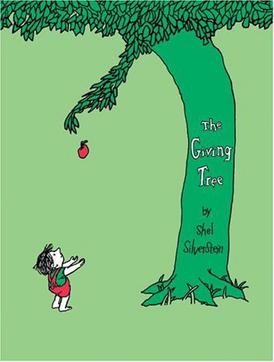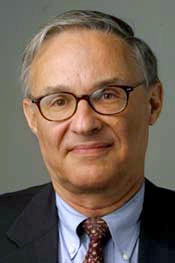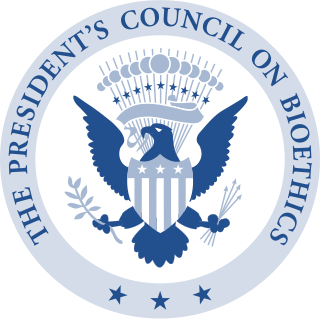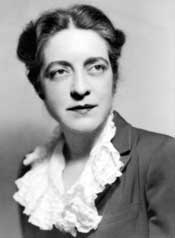Related Research Articles

Hudson Institute is an American right wing think tank based in Washington, D.C. It was founded in 1961 in Croton-on-Hudson, New York, by futurist Herman Kahn and his colleagues at the RAND Corporation.

The Giving Tree is an American children's picture book written and illustrated by Shel Silverstein. First published in 1964 by Harper & Row, it has become one of Silverstein's best-known titles, and has been translated into numerous languages.

Leon Richard Kass is an American physician, scientist, educator, and public intellectual. Kass is best known as a proponent of liberal arts education via the "Great Books," as a critic of human cloning, life extension, euthanasia and embryo research, and for his tenure as chairman of the President's Council on Bioethics from 2001 to 2005. Although Kass is often referred to as a bioethicist, he eschews the term and refers to himself as "an old-fashioned humanist. A humanist is concerned broadly with all aspects of human life, not just the ethical."

John Henry Waddell was an American sculptor, painter and educator. He had a long career in art education and has many sculptures on public display, but he may be best known for That Which Might Have Been—his memorial to the four girls killed in the 1963 bombing of the 16th Street Baptist Church in Birmingham, Alabama.

The President's Council on Bioethics (PCBE) was a group of individuals appointed by United States President George W. Bush to advise his administration on bioethics. Established on November 28, 2001, by Executive Order 13237, the council was directed to "advise the President on bioethical issues that may emerge as a consequence of advances in biomedical science and technology". It succeeded and largely replaced the National Bioethics Advisory Commission, appointed by President Bill Clinton in 1996, which expired in 2001.

Melba Newell Phillips was an American physicist and a pioneer science educator. One of the first doctoral students of J. Robert Oppenheimer at the University of California, Berkeley, Phillips completed her PhD in 1933, a time when few women could pursue careers in science. In 1935, Oppenheimer and Phillips published their description of the Oppenheimer–Phillips process, an early contribution to nuclear physics that explained the behavior of accelerated nuclei of radioactive hydrogen atoms. Phillips was also known for her refusal to cooperate with a U.S. Senate judiciary subcommittee's investigation on internal security during the McCarthy era which led to her dismissal from her professorship at Brooklyn College, where she was a professor of science from 1938 until 1952.
Harriet Baldwin Creighton was an American botanist, geneticist and educator.
Marianne Boruch is an American poet whose published work also includes essays on poetry, sometimes in relation to other fields and a memoir about a hitchhiking trip taken in 1971.

May Petrea Theilgaard Watts was an American naturalist, writer, poet, illustrator, and educator. She was a naturalist at The Morton Arboretum in Lisle, Illinois, and author of Reading the Landscape of America.
Deborah Kass is an American artist whose work explores the intersection of pop culture, art history, and the construction of self. Deborah Kass works in mixed media, and is most recognized for her paintings, prints, photography, sculptures and neon lighting installations. Kass's early work mimics and reworks signature styles of iconic male artists of the 20th century including Frank Stella, Andy Warhol, Jackson Pollock, and Ed Ruscha. Kass's technique of appropriation is a critical commentary on the intersection of social power relations, identity politics, and the historically dominant position of male artists in the art world.
Diana J. Schaub is professor of political science at Loyola University Maryland. Schaub received both her M.A. and Ph.D. from the University of Chicago. She teaches and writes on a wide range of issues in political philosophy and American political thought. Schaub was also a member of The President's Council on Bioethics.

Lorraine Hairston Morton was an American politician who was the mayor of Evanston, Illinois, from 1993 to 2009. Morton was Evanston's first African-American mayor, first Democratic mayor, and longest-serving mayor. She is also notable for spearheading the desegregation of Evanston's public schools as a teacher and school principal.
Stanley Kurtz is an American conservative commentator, author and a senior fellow at the Ethics and Public Policy Center. He has taught at Harvard University and the University of Chicago. He is also a contributing editor to National Review.
Emma Garrett was an American educator and advocate of teaching speech to the deaf. She established the Pennsylvania Institution for the Deaf and Dumb in Mount Airy, Philadelphia, to teach the language to the deaf. She paired with sister Mary Smith Garrett to establish their own school with a federal grant. Her educational methods to find how best to fully teach a deaf student can be seen through the word method in teaching which she ultimately created and is still used in educational classrooms with deaf students. Through this she was able to change the lives of many deaf students and allow them a chance at education.
Barbara Taylor Bowman is an American early childhood education expert/advocate, professor, and author. Her areas of expertise include early childhood care/education, educational equity for minority and low-income children, as well as intergenerational family support and roles. She has served on several boards and was the co-founder of Erikson Institute, where she pioneered the teaching of early childhood education and administration.

Shadi Bartsch is an American academic and is the Helen A. Regenstein Distinguished Service Professor of Classics at the University of Chicago. She has previously held professorships at the University of California, Berkeley and Brown University where she was the W. Duncan MacMillan II Professor of Classics in 2008-2009. From 2015 to 2024 she was the Director of the Institute on the Formation of Knowledge (IFK) at the University of Chicago.
What So Proudly We Hailed and similar phrases could refer to:
Laurie Jeanne Butler is an American physical chemist known for her experimental work testing the Born–Oppenheimer approximation on separability of nuclear and electron motions. She is a Fellow of the American Physical Society and a professor emeritus of chemistry at the University of Chicago.
"The Best Years" is a short story by Willa Cather, first published after her death in the collection The Old Beauty and Others in 1948. It is her final work, and was intended as a gift to her brother, Roscoe Cather, who died as it was being written. Set in Nebraska and the northeastern United States, the story takes place over twenty years, tracing the response of Lesley Ferguesson's family to her death in a snowstorm.
Amy Stanley is an American historian of early modern Japan. In 2007, Stanley began teaching in the Department of History at Northwestern University in Evanston, Illinois, where she teaches undergraduate and graduate courses on Japanese history, global history, and women's/gender history. She is best known for her most book Stranger in the Shogun's City: A Japanese Woman and Her World, which received the National Book Critics Circle Award and the PEN/Jacqueline Bograd Weld Award for biography, and was a finalist for both the Baillie Gifford Prize and Pulitzer Prize for Biography or Autobiography.
References
- ↑ William A. Schambra (2015-08-20). "Amy A. Kass, 1940-2015". Hudson.org. Archived from the original on 2018-12-15. Retrieved 2017-03-17.
- 1 2 "Hudson Institute". Hudson.org. Archived from the original on 2013-10-26. Retrieved 2017-03-17.
- 1 2 3 4 "Olin Center, Amy Apfel Kass CV". Olincenter.uchicago.edu. 2000-01-02. Retrieved 2017-03-17.
- ↑ See Keiper, Caitrin, "The Greatest of Teachers," The Weekly Standard, September 7, 2015, at 13 and Schaub, Diana, "Her 'Epic Reverberations,'", The Weekly Standard, September 7, 2015, p. 15.
- 1 2 Kass, Leon. "Letter on the Civil Rights Movement". The Meaning of Martin Luther King Jr. Day. What So Proudly We Hail. Archived from the original on February 21, 2013. Retrieved January 15, 2013.
- ↑ "Amy KASS > Faculty & Speakers > Hertog Political Studies Program". Archived from the original on 2012-02-11. Retrieved 2011-06-15.
- ↑ "Leon KASS > Faculty & Speakers > Hertog Political Studies Program". Archived from the original on 2012-02-11. Retrieved 2011-06-15.
- ↑ "Amy Kass". FORA.tv. Archived from the original on 2012-10-17. Retrieved 2017-03-17.
{{cite web}}: CS1 maint: unfit URL (link) - ↑ "Hudson Institute". Hudson.org. Archived from the original on 2013-10-28. Retrieved 2017-03-17.
- ↑ Amy A. Kass; Leon Kass (2000). Wing to wing, oar to oar: readings on courting and marrying. University of Notre Dame Press. ISBN 9780268019594 . Retrieved 2017-03-17.
- ↑ "Book". Whatsoproudlywehail.org. Retrieved 2017-03-17.
- ↑ Obituary, legacy.com; accessed August 15, 2017.
- ↑ "Llewellyn John and Harriet Manchester Quantrell Awards for Excellence in Undergraduate Teaching". Uchicago.edu. Archived from the original on 2012-09-19. Retrieved 2017-03-17.